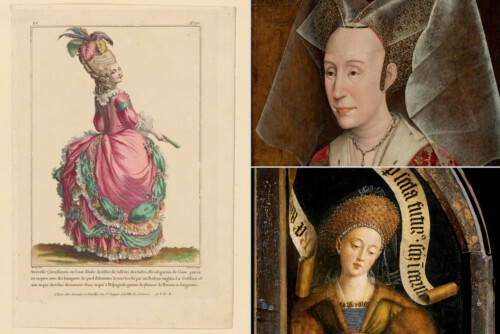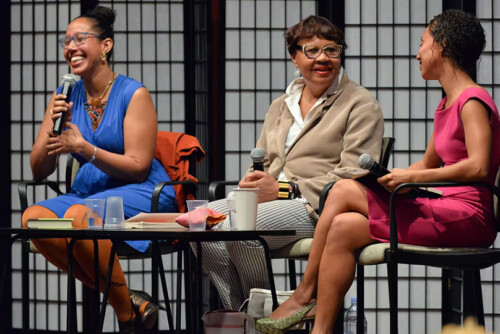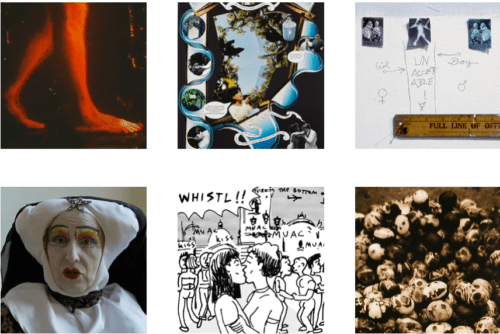Tara is a 27-year-old transgender woman from Guyana. When she entered the United States at JFK airport in New York, she declared to immigration officials that she was escaping lifelong torture and recent rape in Guyana and was seeking asylum in the United States. To her surprise she was held in an immigration detention facility, chained, and denied hormone treatment. She was able to receive legal representation and was granted asylum after living in the detention center for three months. Even though Tara claimed that her gender identity was female, she was put in the men’s ward and subjected to intense verbal and physical abuse by other detainees and the detention officers.
Raul is a 38-year-old gay HIV-positive man from Brazil. He has lived in the United States for the last 15 years, first as an international student and then on a work visa. His work sponsored him for a green card and he was told that his application was approved. During the mandatory medical exam Raul was informed that he was HIV positive, and his application was instead denied. Since then Raul has lived in the United States illegally, and cleans apartments for eight dollars an hour in San Diego.
Atif is a 32-year-old gay man from Bangladesh. He has been a lifelong target of violent Islamic fundamentalists in his neighborhood for being effeminate and having a Christian boyfriend. After his boyfriend was murdered in front of him, his mother sold all her jewelry and bought him a plane ticket to New York. He arrived just days before 9/11. For years he has suffered from depression and addiction, and has been working at a Dunkin’ Donuts for an hourly wage of $5.75. He was picked up in an immigration raid and held as a detainee for five weeks. Upon his release he got in touch with a fledgling LGBT immigrant support group, and was able to obtain representation. His application for asylum was denied, but he was granted “withholding of removal” (he is allowed to live and work in the United States, but is never able to leave the country).
Tara, Raul, and Atif are among millions of lesbian, gay, bisexual, and transgender (LGBT) immigrants living in the United States whose lives are caught between sexism, transphobia, homophobia, xenophobia, and exploitation of labor across global borders. Queers for Economic Justice estimates that there are over 1 million LGBT undocumented immigrants in the US who are in dire need of immigration reform. 5
Immigration laws in the United States are largely based on two policy priorities: the reunification of “families,” and “merit.” Family ties are defined on the basis of the heterosexual nuclear family, leaving LGBT households and relationships largely outside the protection of immigration law. The ban on HIV-positive immigrants to the United States also created great hardship, as in Raul’s case. Many LGBT immigrants without “qualifying relationships” have been unable to obtain an HIV waiver, making access to treatment difficult, if not impossible.
After several years of on the ground organizing by HIV/AIDS organizations, such as Gay Men’s Health Crisis and AIDS Action; LGBT rights organizations such as Queers for Economic Justice; Immigration Equality; and several leading national immigration policy organizations, the United States Congress passed the Henry Hyde and Tom Lantos Global HIV and Tuberculosis Relief Act, also known as the “Presidential Emergency Plan for AIDS Relief.” 6 As a part of this act, which was signed into law by President George Bush on July 30, 2008, Congress agreed to remove the HIV ban language from the Immigration and Nationality Act. 7
Relief to LGBT immigrants is sometimes made available to those applying for asylum. Following the case of Toboso-Alfonso in 1994, Attorney General Janet Reno issued an order allowing the granting of political asylum to those identifying as “homosexual” who are fleeing torture and persecution from their governments. The process can be very difficult, both practically and emotionally, but application must be made within one year of entry to the country. Further barriers were added with the passage of the REAL ID act in 2005, which gave discretionary powers to asylum officers and judges to demand any kind of proof of persecution from the applicants. 8
Despite such difficulties and barriers, LGBT immigrants are not passive victims of torture, persecution, and abuse from the immigration system. LGBT immigrant rights organizations currently exist in cities such as San Francisco, Chicago, New York, Houston, Los Angeles, and Atlanta. LGBT Centers in larger cities like New York have created outreach efforts, English and Spanish-speaking support groups, and ESL programs for LGBT immigrants. However these efforts still remain on the margins of both the LGBT rights and immigrant rights movements. The immigrant advocacy movement places undue emphasis on heterosexual relationships and conceptions of normality in its efforts to gain basic citizenship rights. The mainstream LGBT rights movement tends to focus on those immigrants who are conjugal partners of US citizens. This leaves out the predicaments, for instance, of single people and those who do not define themselves within conventional, conjugal, marital relationships.
In my more than ten years of experience organizing in the LGBT movement in the United States, I have found immigration activism motivated largely by stories of the predicaments of binational couples. While important, these are not the only issues that LGBT immigrants face. It is especially important to realize that the focus on transferring immigration benefits to the conjugal partners of LGBT US citizens is not an immigrants’ rights issue per se, but is organized around concern for the rights for US citizens. Further, even if the proposed Uniting American Families Act (a singular act which seeks to allow LGBT US citizens to sponsor their foreign-born partners for immigration purposes) is passed by the US Congress and is signed into law by the new president, it has several legal limitations.
Most importantly, US immigration law, following the passage of immigration reform in 1996, requires a high income level for the US citizen or green card holder who is seeking to sponsor a “spouse” or “family relative.” Additionally, the sponsoring person is held responsible for all economic needs in case of illness or unemployment of the person they are sponsoring. Such high income requirements for sponsorship significantly limit the possibilities of low-income people to sponsor their partners. Finally, those immigrants who are currently undocumented will still face the ineligibility criteria when their partners apply to sponsor them for immigration purposes.
In an effort to highlight the work of LGBT immigrant rights organizers, and to create cross-movement dialogue in the wake of the “comprehensive immigration reform” that swept the nation in 2006-2007, I embarked upon the project of creating the first national “Queer and Transgender Vision Statement on Immigration Reform” in summer 2006. As the New Voices fellow for Queers for Economic Justice, I had been conducting meetings with LGBT immigrant rights organizers from across the country, and brought together a group of organizers from Love Sees No Borders in San Francisco, Chicago Lesbian, Gay, Bisexual, Transgender Immigrants Alliance (CLIA), Immigration Equality from New York, the Queer Immigrant Rights Project (QuIR) from New York, and Out 4 Immigration (O4I) in San Francisco. Together we inaugurated a six-month-long process, going back and forth while producing 19 drafts of the statement. Our work together revealed key areas of agreement and difference among the LGBT immigrant rights organizers.
- Personal communication with board members of the Queer Immigrant Rights Project and Love Sees No Borders. See also: Heather Cottin and Namwiinga Simwiinga-Khumalo, “Movement Announces May 1 Actions for Immigrant Rights” Workers World, 27 Mar. 2007.[↑]
- Henry Hyde Tom Lantos Bill. Accessed on 1/23/2012.[↑]
- For a discussion of the history of the HIV ban, see N. Ordover’s article in this volume.[↑]
- See Eithne Luibheid, Entry Denied; Controlling Sexuality at the Border (Minneapolis: U of Minnesota P, 2002) 152. See also, Queers for Economic Justice, The REAL ID Act and NY State Driver’s License Policies (PDF). (New York: Queers for Economic Justice, n.d.). Accessed on 12/21/2011.[↑]



